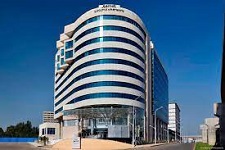By Woubishet Sisay – The hotel and hospitality industry in Ethiopia has experienced significant growth and development in recent years.
The country’s rich cultural heritage, diverse landscapes, and growing economy have contributed to the increasing demand for hotels and accommodation options. In this comprehensive response, we will explore various aspects of the hotel and hospitality industry in Ethiopia, including its current state, key players, challenges, and future prospects.
Current State of the Hotel and Hospitality Industry in Ethiopia
Ethiopia has been witnessing a steady increase in tourist arrivals over the past decade. The government’s efforts to promote tourism, improve infrastructure, and ease visa regulations have played a crucial role in attracting both domestic and international visitors. As a result, the hotel and hospitality industry has experienced significant growth to meet the rising demand for accommodation.
Addis Ababa, the capital city of Ethiopia, is a major hub for business travelers and tourists. It is home to numerous international conferences, diplomatic missions, and organizations. Consequently, the city has seen a surge in the number of luxury hotels catering to high-end clientele. These hotels offer world-class amenities, including conference facilities, fine dining restaurants, spa services, and recreational activities.
Apart from Addis Ababa, other popular tourist destinations in Ethiopia such as Lalibela, Bahir Dar, Gondar, Axum, and the Simien Mountains have also witnessed an increase in hotel development. These regions attract tourists with their historical sites, natural beauty, and unique cultural experiences.
Key Players in the Ethiopian Hotel Industry
The Ethiopian hotel industry comprises a mix of international hotel chains, local hotel groups, independent boutique hotels, and guesthouses. Some of the key players in the industry include:
1. Ethiopian Hotels Enterprise (EHE): EHE is a government-owned corporation responsible for managing several hotels across Ethiopia. It operates under the Ministry of Culture and Tourism and plays a significant role in providing accommodation options for both domestic and international travelers.
2. Marriott International: Marriott International, one of the world’s largest hotel chains, has a strong presence in Ethiopia. It operates several hotels in Addis Ababa, including the Sheraton Addis, which is a landmark luxury hotel in the city.
3. Hilton Worldwide: Hilton Worldwide has also established its presence in Ethiopia with the Hilton Addis Ababa. This iconic hotel offers a range of amenities and services to cater to business and leisure travelers.
In addition to these major players, there are several other local and international hotel chains operating in Ethiopia, including Radisson Blu, Golden Tulip, Ramada, and InterContinental Hotels Group (IHG).
Challenges Facing the Hotel and Hospitality Industry in Ethiopia
While the hotel and hospitality industry in Ethiopia has experienced significant growth, it also faces various challenges that need to be addressed for sustainable development. Some of the key challenges include:
1. Infrastructure: Despite improvements in recent years, Ethiopia’s infrastructure still requires further development to support the growing tourism industry. Issues such as inadequate road networks, limited air connectivity, and inconsistent power supply can hinder the industry’s growth potential.
2. Skilled Workforce: The availability of a skilled workforce is crucial for delivering high-quality hospitality services. However, there is a shortage of trained professionals in the Ethiopian hotel industry. Efforts are being made to address this issue through vocational training programs and collaborations with international hospitality schools.
3. Marketing and Promotion: While Ethiopia has made progress in promoting itself as a tourist destination, more efforts are needed to enhance marketing and promotional activities on both domestic and international fronts. Effective branding campaigns and targeted marketing strategies can help attract a wider range of tourists.
Future Prospects of the Hotel and Hospitality Industry in Ethiopia
The future prospects for the hotel and hospitality industry in Ethiopia are promising. The government’s commitment to developing tourism as a key economic sector, along with ongoing infrastructure improvements, will contribute to the industry’s growth. Additionally, Ethiopia’s unique cultural heritage, natural attractions, and growing business opportunities will continue to attract tourists from around the world.
The Ethiopian government has also implemented various policies and incentives to encourage investment in the hotel and hospitality sector. This has resulted in increased interest from both local and international investors, leading to the development of new hotels and resorts across the country.
Furthermore, Ethiopia’s strategic location as a gateway to Africa positions it as a potential hub for international conferences and events. This presents an opportunity for the hotel industry to cater to the needs of business travelers and delegates attending such events.
In conclusion, the hotel and hospitality industry in Ethiopia has experienced significant growth in recent years. The government’s efforts to promote tourism, improve infrastructure, and ease visa regulations have played a crucial role in attracting both domestic and international visitors.
With a mix of international hotel chains, local hotel groups, and independent boutique hotels, Ethiopia offers a diverse range of accommodation options. While challenges such as infrastructure development, skilled workforce availability, and marketing efforts need to be addressed, the future prospects for the industry are promising.

